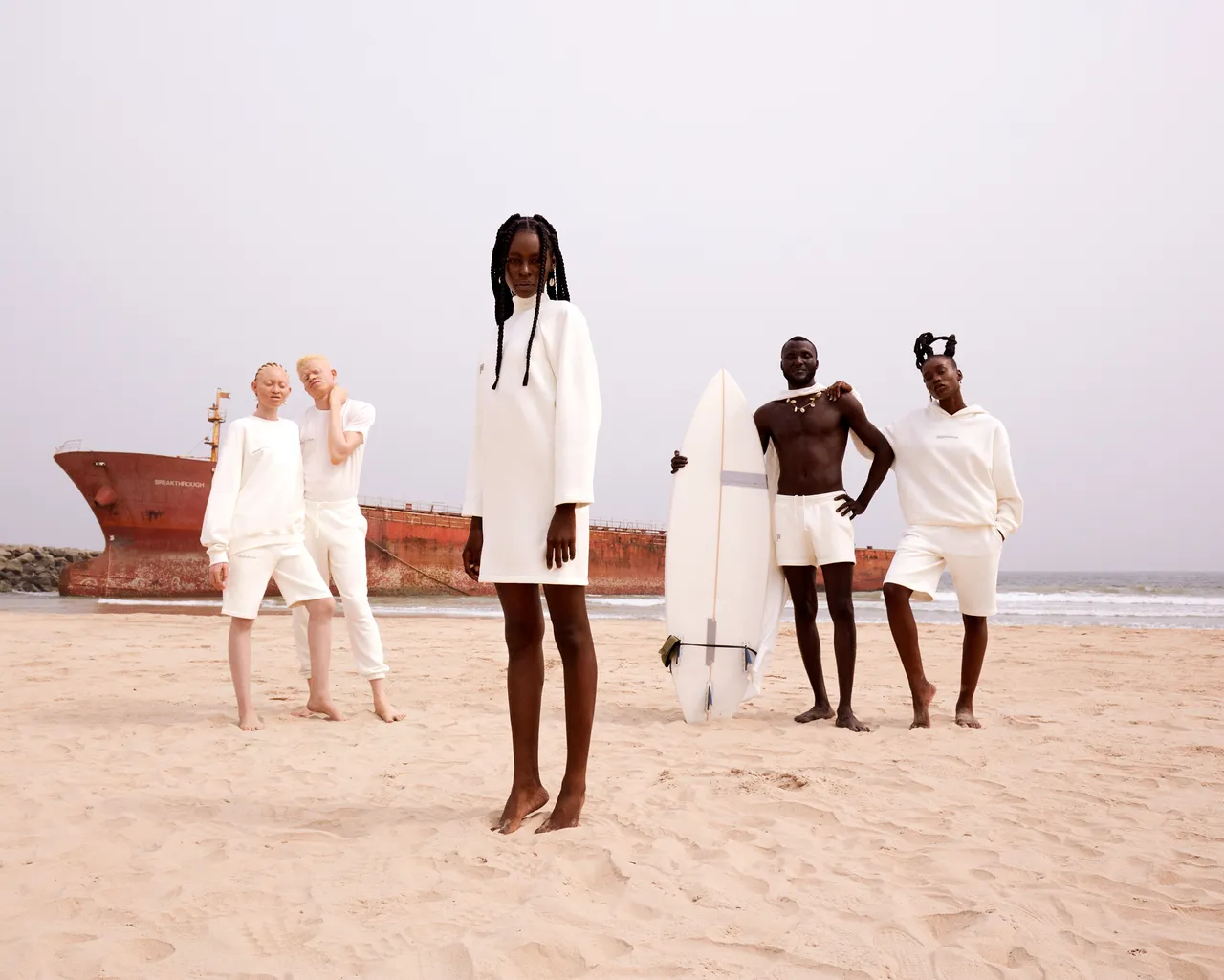Footwear company Vivobarefoot and fashion label Pangaia join Ecovative’s race to bring compostable mycelium-based fashion mainstream.
Minimalist running shoe company Vivobarefoot, and materials science-based fashion brand Pangaia, are the latest to explore mycelium—the root structure of mushrooms—as part of the Ecovative and Fashion for Good’s cooperative for sustainable product development.
The partnership sees Vivobarefoot and Pangaia join PVH and Bestseller brands including Calvin Klein and Tommy Hilfiger in experimenting with the mycelium foam and leather produced by Ecovative. PVH and Bestseller joined at the launch of the project last December. The initiative is focused on Ecovative’s Forager Hides—mushroom leather that feels and performs like conventional animal leather.
Forager Hides
Ecovative launched Forager Hides last March. They are the second-generation mycelium materials from the brand. Ecovative says its Forager Hides can solve the sustainability challenges of the fashion industry.
“For more than a decade, our team has been working to develop bio-based alternatives that perform at the same level as conventional foams and leathers,” Gavin McIntyre, Ecovative’s Co-Founder and Chief Business Officer, said in a statement. Specifically, the New York-based Ecovative has been working to disrupt the fashion industry’s waste stream with its mycelium technology.
Ecovative, which also has a partnership with home furnishings giant Ikea on its sustainable packaging, says it can grow sheets of mycelium that are 24-meter-long by nearly 2-meters-wide in just nine days and more than 3 million square feet of the vegan leather on just one acre of land.
The mushroom leather is a sustainable alternative to PVC (polyvinyl chloride) and EVA (ethylene and vinyl acetate). The Ecovative Forager brand of mycelium foam and leather are exceptionally sustainable. the company says they can be composted at home in a matter of weeks.
Vivobarefoot says the partnership with Ecovative will help the brand to continue its commitments to sustainably sourced and natural materials.
“Mycelium is one of the most versatile and high-performing bio-materials on the planet, and has the potential to replace petroleum-based foams that are so commonplace in the footwear industry, sadly, including our own value chains,” said Galahad Clark, CEO and founder at Vivobarefoot.
Clark says Vivobarefoot’s partnership with Ecovative will help to create the “next generation” of high-performing, regenerative footwear “that will bring us closer to nature and our natural human potential.”
A sustainable fashion future
Ecovative has raised more than $90 million to date, including $60 million in a Series D funding round last year. It says more than 20 billion pairs of shoes are produced annually, and 35 percent of that is made from PVC and EVA. That creates millions of pounds of waste that can’t be recycled. The company says a lack of supply chain transparency in the fashion industry accounts for about ten percent of global emissions.
“There is a pressing need for eco-friendly alternatives, but they often come with major trade-offs: they are more expensive, do not perform well, or are difficult to scale,” the company says. Through its mycelium technology, Ecovative says it has pioneered truly sustainable, all-natural materials at scale that can not only replace foam materials in shoes, but replace plastic, Styrofoam, and other materials.
Last month, U.K.-based Pangaia made its U.S. debut with Concept 016 pop-up shops across Nordstrom department stores featuring sustainable items for adults and children.
The faceless organization positions itself as a global collective of scientists, designers, and technologists working as “one heart and many hands” to solve the fashion industry’s climate impact.
A year ago, it launched a Naomi Campbell-fronted campaign for its “Air-Ink,” made from carbon emissions. The carbon-capture ink improves air quality in the factories where it’s made as well as reducing 800 grams of CO2 for each kilogram of Air-Ink.
Also last March certified B Corp brand Vivobarefoot, which uses recycled and sustainable materials across its collections, launched “Redesign Heroes,” a collection of “more sustainable” versions of its iconic footwear.
“The industry focuses on shoes made with sustainable materials as the finish line,” Asher Clark, Vivobarefoot creative director and co-founder said in a statement. “For the sake of human and planetary health this has to change. Our focus is on producing perfect footwear which is regenerative to feet, human movement and planetary health,” he said.
“In 2019 we brought creation of all new products to a halt to totally overhaul our design approach,” added Emma Foster-Geering, Vivobarefoot’s director of sustainability.
“We are committed to and working towards never bringing anything to market that does not meet our regenerative sustainability goals. The compounding impact of ‘the bottom of the iceberg’, that being globalized supply chains making unsustainable products, is no longer allowed in our business, nor should it be in the industry at all.”


